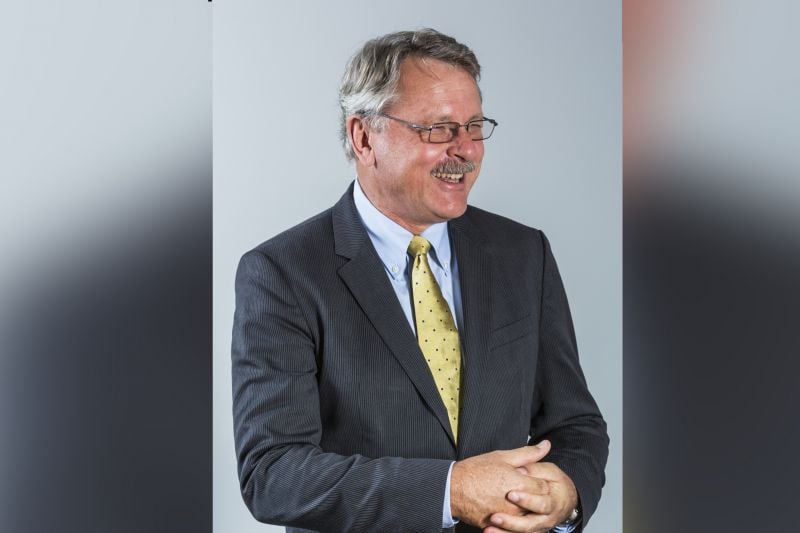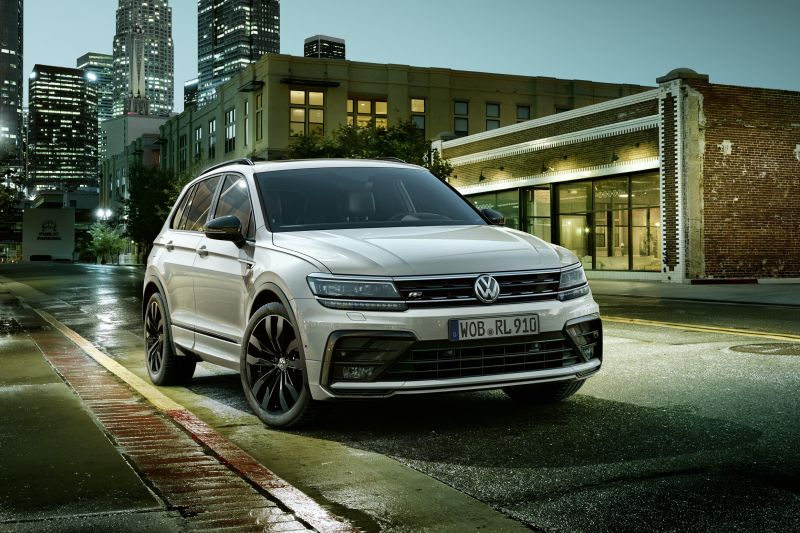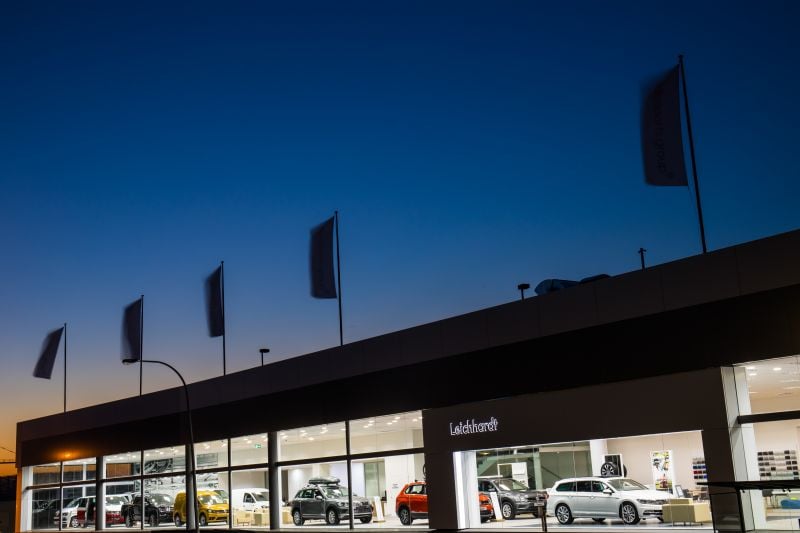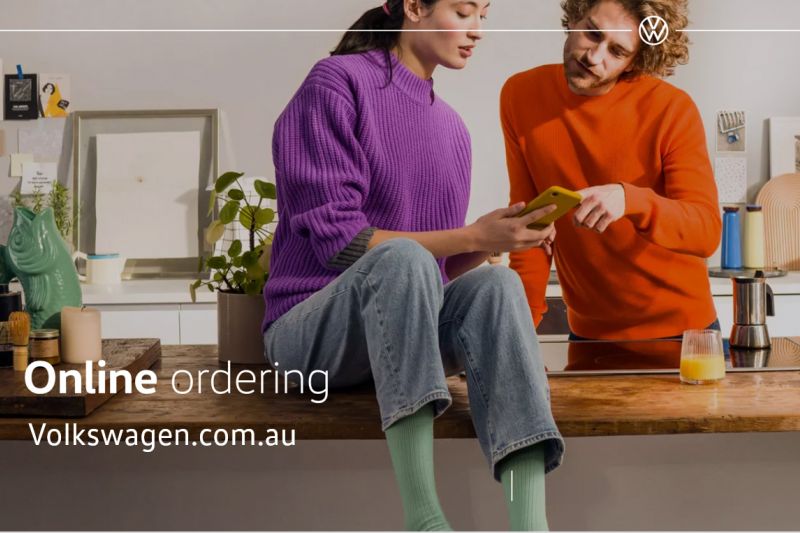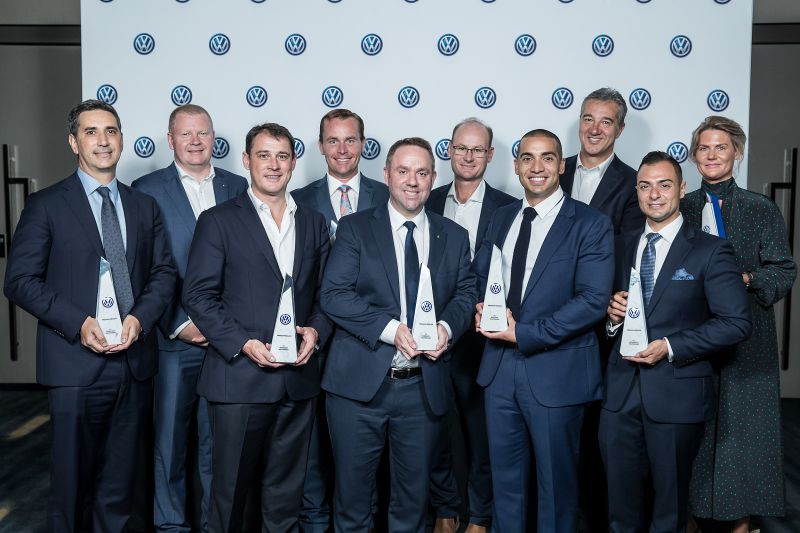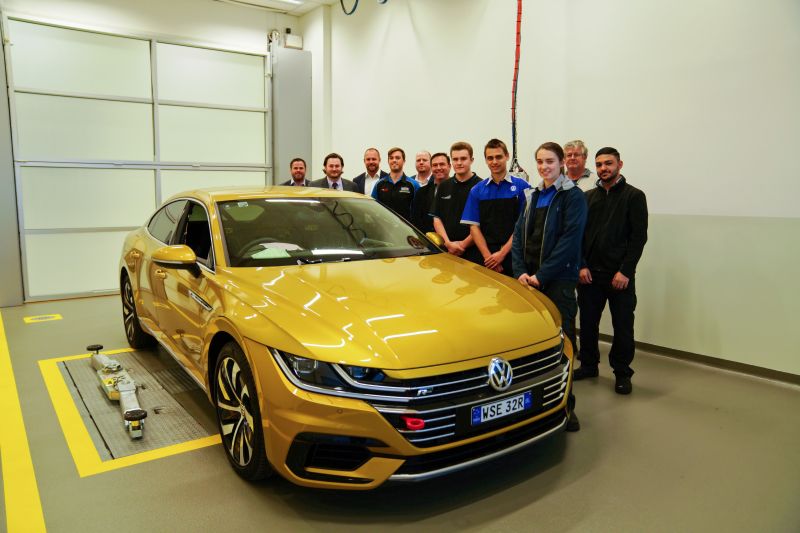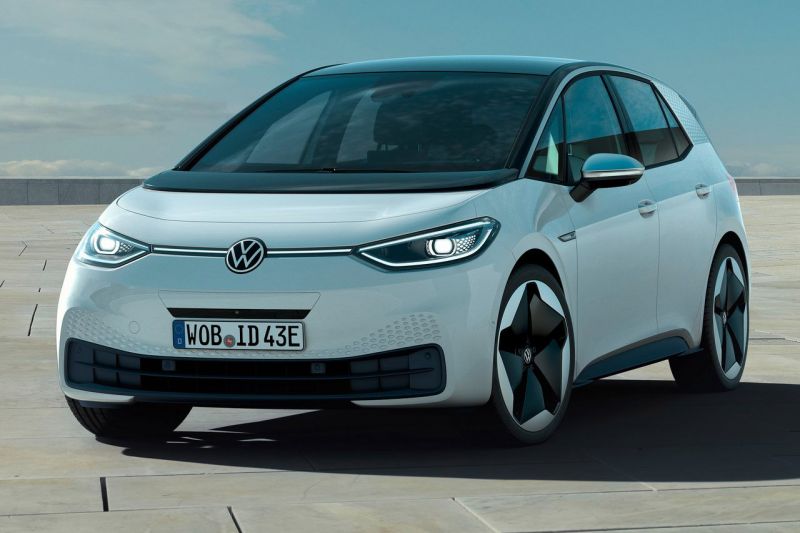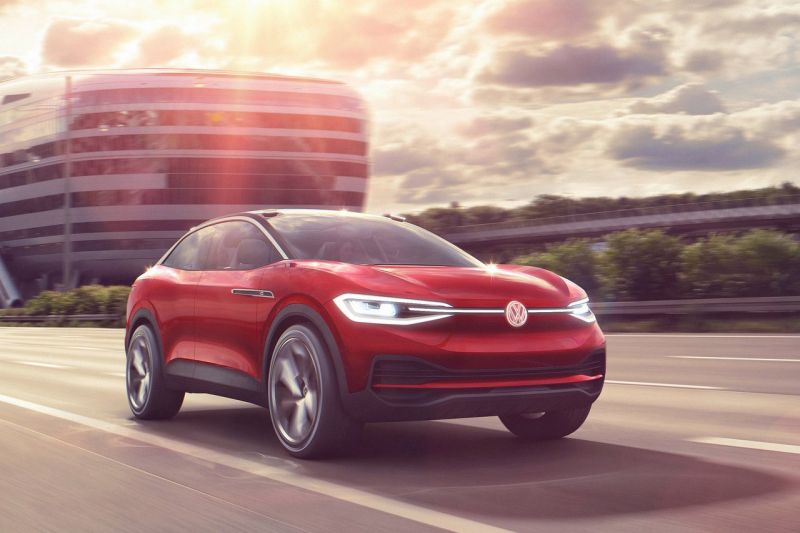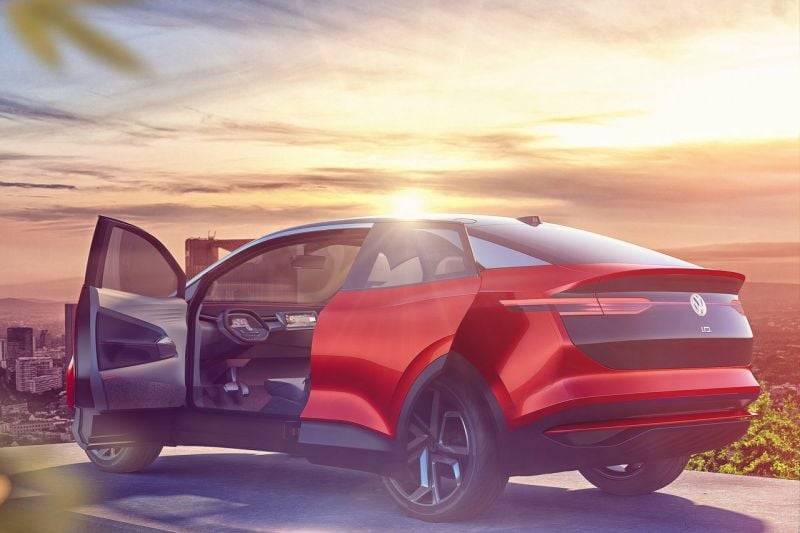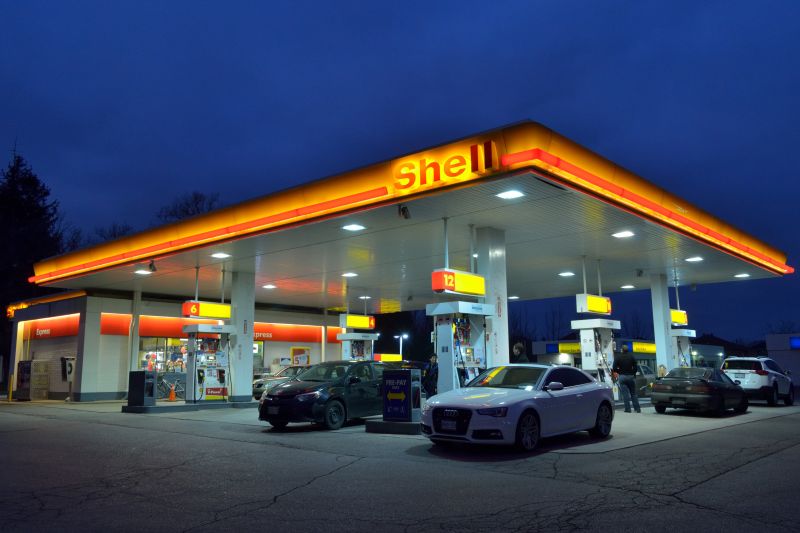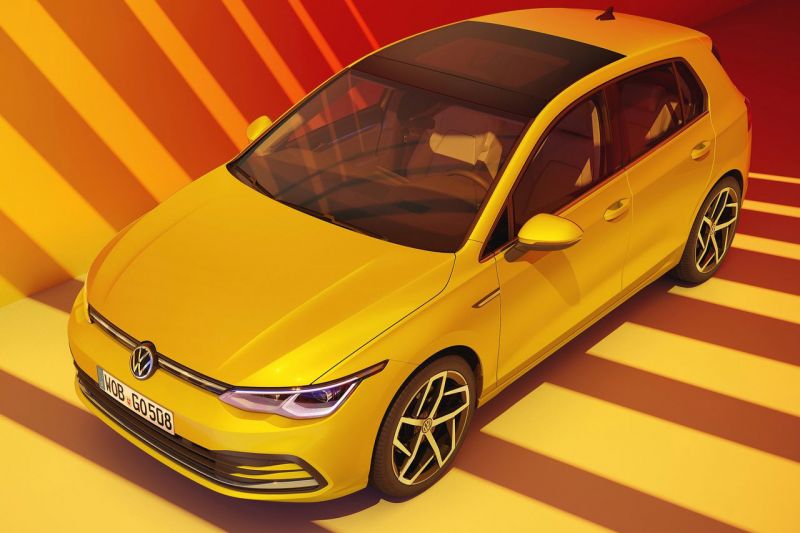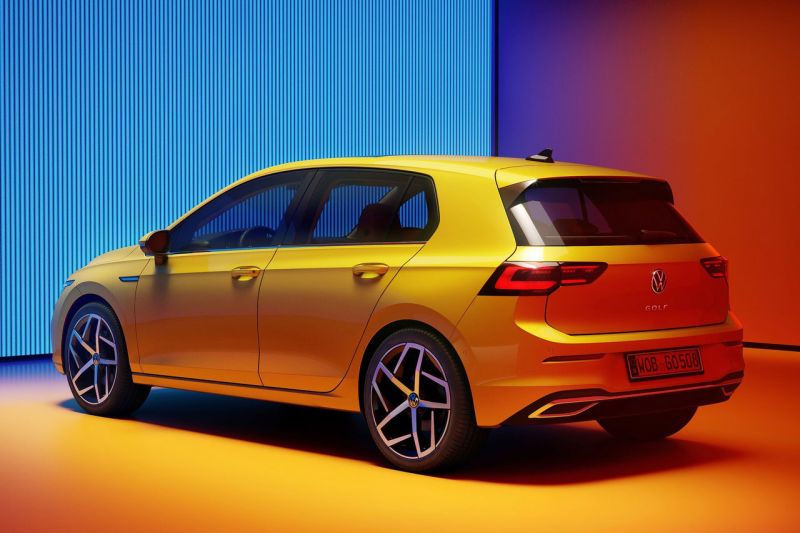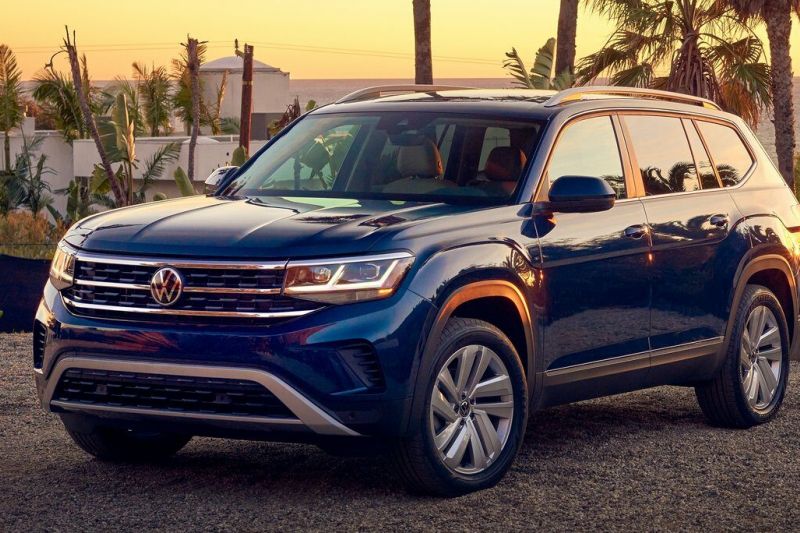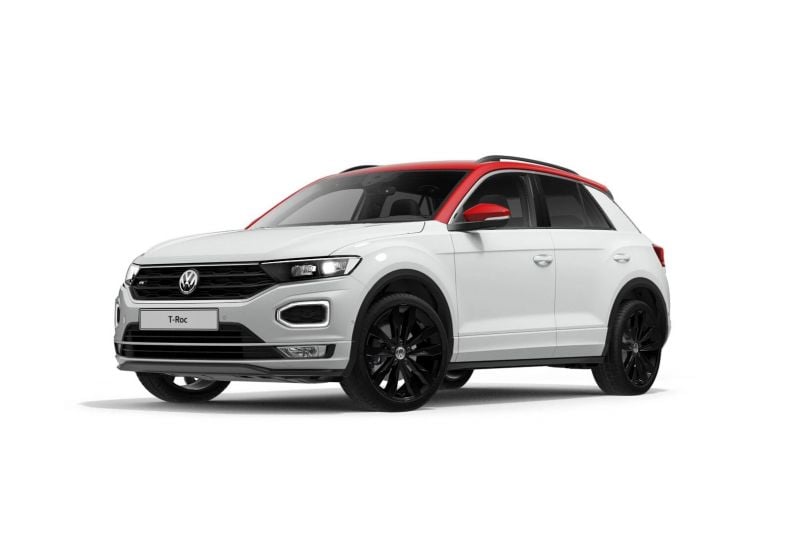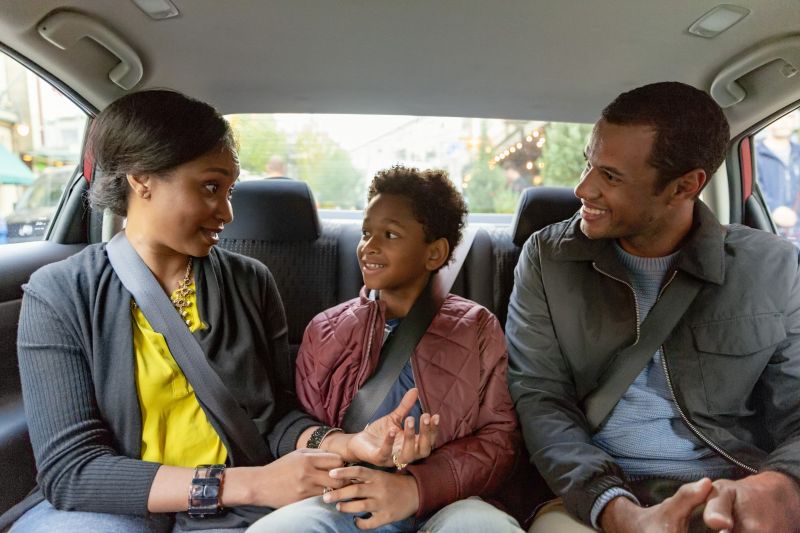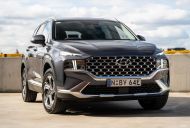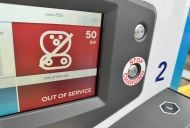Michael Bartsch has been working in the automotive industry for a long time.
The current Volkswagen Australia managing director headed up sales and marketing at Porsche Australia for eight years, was CEO of Porsche Canada for two years, spent eight years as chief operating officer for Porsche Cars North America, and served as vice president of Infiniti in the Americas.
He’s been managing director of Volkswagen Australia since 2015.
He spoke with CarExpert about COVID-19 and its impact on the automotive business, dealer training, electric vehicles, and fuel standards – a topic about which he’s spoken at length during his tenure.
Also in the interview was Volkswagen Australia communications boss Paul Pottinger. His responses in italics below.
CarExpert: Given it is the only news story at the moment, how is COVID-19 affecting Volkswagen Australia, and what are you doing to keep operations up and running at the moment?
Michael Bartsch: Let’s talk at the general business level with us. Because you have us, and then you have the dealers, and then you have the customers.
But I think with Volkswagen Australia here, you’ll probably see in April 40 per cent of our normal revenue. So we’ll be down about 60 per cent, which I think is fairly reflective of the industry generally.
I think the real challenge isn’t so much April, it probably won’t even be May, because I think everybody knows what the operating parameters are for those two months. I think the real challenge for everybody is to now just to think ‘what does the curve look like coming out of this, and when is normal again – and what is normal?’
In terms of our operation here, I think the way that we’re approaching business at the moment is; so long as we achieve our share of the market, whatever that market is, we’ll be happy.
We’ve de-escalated quite significantly the pressure on the dealer network, and I’ll come back to that a bit more, but basically in terms of general operating here, we’re extremely grateful of the government JobKeeper program.
But even in spite of that, we still have to reduce our pressure on the company by… the downturn has probably freed up about 30 per cent of our labour time, we’re covering 20 per cent of that with JobKeeper, so we have a load here of about 10 per cent.
The way that we’re trying to manage that here is we’re encouraging our people where it’s within the guidelines of the support – anybody who has more than two weeks leave – we’re just encouraging them to think about using it if they can.
I’m a good example… I have about five weeks of leave accumulated. In May I’ll take a week’s leave. I’ll be working but I’ll write a week’s leave off, just to take some pressure off the balance sheet and preserve liquidity wherever we can.
Because of course we’re a business in our own right here in Australia, we have to raise our own capital. We have to look after ourselves as a viable business unit.
I don’t think anything has shocked us. We’re no different than anybody else in the economy.
I think what was a little surprising to me was the impact, probably, on the dealer network has been much bigger than the average response within the economy.
If you have a look at the dealerships that are listed on the Australian Stock Exchange, you’ll see that the publicly-listed car companies have dropped in value about 60 per cent – which is a lot more than what the ASX has generally dropped, which is about 18, 20 per cent.
And I think what that indicates is that the automotive business probably is in one of the ‘high risk’ ends, simply because it’s a very, very low margin, very capital intensive – it’s a high revenue business, but a very low profit business.
And the challenge for the automotive industry is that we’ve come into this off the back of an economy that had weakened anyway.
Chicken and the egg, the bushfires – which certainly affected the markets, particularly on the eastern seaboard of Australia all the way down to Melbourne – and then you overlay that with Coronavirus.
In a business model where the margins are traditionally a two per cent return on sales, you now have a network and an industry – if you look at what Deloitte shows as the aggregated profitability of the industry, before Coronavirus the average return on sales in the industry was one per cent.
We haven’t seen any quarterly figures yet, but that will be back probably negative for the industry – certainly for March and April it will be negative.
The network at the moment generally, the dealer business generally – not Volkswagen specifically but the network generally is under a lot of stress. The last time I saw anything like this was the ‘recession we had to have’ between 1988 and 1992. I think it’s almost, in terms of stress on the network, at the same level – maybe even more.
It’s a telling time. There are some positives from it, on the other side of this we’ve had within our network (so far) no defaults, we’ve had no late payments on any accounts which I think is also an indication of the general resilience and the acumen that’s in the business.
I think if the dealership survives April and May they’ll come out of it. But I think the other side of it is… they’ll come out of it as good as the partnership is between the OEM, between the brand, and the dealer.
What do I mean with that? There are some industry practices which are not of the highest standard from within the automotive industry on the OEM side…
CE: Are you alluding to stock being pushed on dealers?
MB: Basically, over-leveraging dealers to carry stock, false punching of registrations.
The FCAI has been all over this, I have to complement the FCAI on their agenda of the last year as to clean the industry up on false reporting and over-leveraging dealers on inventory.
I guess the silver lining for the dealers on this is it’s forced a lot of players in the industry to have a very hard look at some of those practices because the dealers simply don’t have liquidity, the banks will not extend the floorplan – etcetera etcetera.
There are some very interesting practices in the [automotive] business at the end of financial years, to wholesale cars to the dealers and then promise to buy them back the next month, so the financial report of the ‘other side’ looks more positive than it really was.
Now, I can assure you that is not a practice [of] Volkswagen or any brand within our Group, but it happens within the industry.
The beauty of something like the Coronavirus is that there’s always a silver lining on every cloud, and the silver lining here is that it’s allowing so recalibration – it’s forcing so recalibration – of the business, and I think it’s forcing some best practices to come back into it.
CE: We’ve also seen Volkswagen, among other brands, look more to online sales – although that doesn’t cut the dealer out entirely it is a bit more centralised. Do you see this crisis accelerating that trend?
MB: There’s no question. The escalation of digital business was going to happen with Coronavirus or not, it’s simply accelerated it.
The way we look at it, it’s just adding another major tool to the toolbox. It won’t change the business model fundamentally, but there are two or three generations coming through now where online, digital shopping is as natural as what used to be for old people like me going down to the corner shop to buy a Paddlepop.
It’s just part of the business landscape. In the information age that we have, the process in which you make the buying decision – what you put on your consideration set – is far easier to do that online.
We demonstrated it in April, we put the T-Roc online. Although it’s not out until September, you can order the car now online – I think we have something like 70 or 80 orders – and it’s stress-free, it’s fret-free, it’s efficient.
It’s extremely business efficient for the dealers, because what the dealer ends with is an order and a customer that is pretty well self-qualified. It frees up their resources to deal with people who come in a traditional form, it frees up those who are comfortable with doing it online.
I think the one that’s really, really interesting for me is that we’ve also used the Coronavirus period to put some online offers on. We’ve focused on particularly some older stock, and just in April alone we have taken 70 firm orders online and we’ve started from a platform of basically zero in that area, in that concept.
There’s a facility for an estimated trade-in valuation, it’s a bandwidth based on Redbook. You can pay the deposit online, and you can nominate your delivery dealer. If you don’t a delivery dealer then it will direct you according to your postcode and the local dealer.
There’s no rocket science in it, I think the automotive industry is very forward-thinking and forward-moving, but at the same time we tend to be a little bit traditional – and we’re always challenging that juxtaposition.
In some ways we’re always looking for the new way forward, on the other way we’re still anchored by history and what we’ve always done. And I think the Coronavirus… is forcing everybody to say ‘alright, here’s a good time to try and escalate a few things that we traditionally haven’t done’.
CE: While you’re talking dealers, one of the things Volkswagen put a focus on recently has been the dealer experience and the customer experience.
What’s going on in the background at the moment to continue the work, and what have the measures you’ve put in place done for the customer experience?
MB: I think the starting point on this really has been just – and this is an overused terminology – evolving the culture of the business has really, really been important.
One of the really big challenges is that, if you’re someone in a dealership, the complexity of the profile of the customer has never been greater.
You have Baby Boomers, X, Y – and within that millennials – the bandwidth of financial capability probably has never been bigger, particularly with the way now that you can lease cars, retail finance cars…
It’s a really complex environment, the socio-economics of someone walking into your dealership. The focus that we’ve had is trying to culturalise the business to actually deal with that complexity.
The core of that is, that you have to basically adjust to what the customer wants. Dealerships in the past have tried to adjust the customer to the dealership.
Basically, we have a principle that’s called – for want of a better description – ‘wow’.
And we’ve invested a lot of time into the dealerships with a very simple proposition: how do you wow a customer? It’s really simple dictums like ‘be knowledgeable’, ‘know who I am’, ‘be time efficient’ – really simple little dictums which help them focus and drive the business.
And I think that’s really been the absolute starting point, how to think about the customer in terms of what is right for the customer, not what is right in terms of the dealership. That’s point number one.
Behind that though, you have to have a basic level of training and education. One of the really big points of resistance traditionally within the automotive industry is your training capacity.
One of the nice things of the digital world is we have shifted that load in training to be online and digital. It’s really, really simple. Most of the training we have done on T-Cross has been digital.
You’re increasing your access, you’re increasing your frequency, you’re increasing your efficiency. Just making training more accessible – and you make training more accessible by also reducing the cost of it to the dealer network – that’s the other really critical element.
The other thing is, I think more than anything, everything needs to be measured. We have to hold ourselves accountable, and we have to hold our dealers accountable to the performance and to what the feedback from the customers is.
You have to listen to what customers are saying about you. If you don’t eliminate that, I guess, arrogance then one will never move forward in the way the brand is perceived.
I think the reality of it is, we had to accept there was a period where there was a degree of arrogance. And so call it part of the culturalisation, but one other really important thing is putting metrics in place where we are measuring what people are saying about us and then reacting accordingly.
For example, we were the first automotive brand in Australia to go to the five-star rating system publicly of the dealerships based on feedback from customers. In the past, what we got as satisfaction indexes on dealerships was just between Volkswagen and the dealers.
Now, when you go onto a Volkswagen site, every dealership gets a customer satisfaction index on their front homepage. We were the first to do that.
So it’s little things like that. And I think, like everything, culture comes from the top down.
It really had to start with Volkswagen Australia, and then we spent a lot of the time with the dealers – and of course dealers are very intelligent people, they’re businesspeople – and they know that good customer service ultimately translates to a successful business.
CE: A bit of a step change here, but electric vehicles… Volkswagen globally has aggressively pushed into that space with the ID.3, and there’s obviously a lot more to come.
Which will be the first that we’ll see in Australia?
MB: It would be logical if we go the ID.4, the SUV. I think the market here now is 65, 64 per cent SUV.
That would make the most sense, that’s where the business model would be, because the volume would be there, because that’s where the market is.
CE: Do you have an estimated time of arrival for it?
MB: This is one of the big questions for us. Is it 2022, is it 2023?
It’s not locked down yet.
We have a fundamental disadvantage in Australia, and that is: If we had governments – and I’m not talking any government specifically, because this is a legacy issue that has never been addressed with whoever’s been in power – that actually took the automotive environment from an environmental point of view a little bit more seriously, then they would actually help the case in Australia to get electric vehicles.
The problem with Australia, it’s competing with legislation in the Northern Hemisphere which is far more aggressive and far more attuned to the realities of today’s world and the environment.
The EU requirements under EU 6 is basically dictating the focus of electric vehicles in the Northern Hemisphere. The penalty of not meeting the prescribed legislative NOx and CO2 thresholds are extreme.
So the majority of the electric vehicle production that comes from European manufacturers is being focused on the European market.
Until that demand or that requirement has been satisfied in the Northern Hemisphere, there’s always going to be a little bit of a question mark around when do we get it down here.
Our expectation is maybe 2022, maybe 2023. But I think it leads into a bigger question mark.
The Asian brands, of course, will take [EV development] in a different trajectory because they’re not driven by the EU protocol. So we’ll see those maybe getting in the market a little bit earlier.
Some of the luxury brands that are more price point constrained might even get into the market a little earlier than us. But we want [the ID.4].
If a few basics were done in the competitive landscape here… we’re big advocates on the improvement of the fuel quality in Australia. That disadvantages the high-tech brands like us.
That in itself would support a faster introduction of electric vehicles, because it would force the rest of the market to a closer price alignment on the internal-combustion engine.
If you have certain manufacturers that continue to build cars that only meet EU 4, EU 5 standards, you have a cheaper car. But we produce our cars at EU 6, so we have a more expensive car…
If you look at a car as a modular concept and say ‘the body is one module, the engine is one module, the gearbox is one module, emissions or exhaust system is one module’, the most expensive module of a car at the moment is the exhaust system because of rare earths and so on that are required, and rare minerals that are required to produce it.
If you have a manufacturer that has a significant competitive position in terms of the fuel quality under which they build and deliver their cars – particularly if you can run an exhaust system that is far cheaper – then of course you have a price advantage in the market.
The other big problem that creates an unequal playing field is, all our electric cars would attract a five per cent premium because we don’t have a free-trade agreement [with Europe].
Whilst we have those things we’re dealing with, then our cars have a higher price position in the market relative to our core competitors, which then of course always creates a bigger challenge for us in terms of the business case and the volume.
And that in itself then supports the business case for the Northern Hemisphere. And they’re the challenges that we have. Overlay that with the issues we have against the Euro at the moment with exchange rate, then we have a lot of little bridges to cross and deal with.
CE: The fuel standards question is an interesting one, it’s one you’ve talked about a fair bit.
MB: I don’t understand it. I simply don’t understand how it has been allowed to go for as long as it’s gone and not be addressed.
I actually do. But I think now there’s no local manufacturing here, there is simply no reason anymore not to advance it.
There’s not an erudite, intelligent, informed person out there that would argue it is not in the best interests of the health of this country to move to the lowest level in sulphur possible in the atmosphere.
On average we’re still running at 150 parts-per-million [of sulphur] and EU standard is 10ppm – and we could be running that. We are already doing it with our diesel fuel, but we simply refuse to do it. It smacks of ‘business as usual’ in Australia.
You look at Australia since the second World War, we’ve found every excuse possible in every industry we’ve ever been to delay or to push back on the benchmarks that exist in terms of technology and innovation on the premise that we’re protecting something.
And that’s still the argument. We’re not moving ahead because it might cost the oil industry a whole lot to produce, for the manufacturing and storage… most of it’s coming in from Singapore anyway.
We’ll end up with the inevitability that it will have to be done, and then by that time any chance of a competitive position has disappeared in regards to refining locally…
You would think at the most basic level we would have the capacity to refine fuel at what is now recognised as the benchmark, and just the most basic standard in a world where we’re challenged with global warming, health issues with pollutants, etcetera etcetera.
And people are still making excuses not to do it. I simply don’t understand it.
One of the common arguments for not improving our fuel quality is that we import a lot of our fuel, and would be more expensive if we were to import higher-quality fuel from Singapore – for example. Do you see the logic of that?
MB: I don’t see the logic of it because if you apply that logic right now, with fuel below a dollar or at a dollar, that is a really futile, weak argument. Because price is invariably a supply and demand equation, and we all know demand on fuel is decreasing – and will continue to decrease.
There is going to be an increase in [production] capacity globally. If we really, genuinely believe there is that much price elasticity between the two, then maybe the government would like to consider the amount of excise they’re applying to it and reduce it accordingly.
I think if you ask most people ‘would you be prepared to pay a little bit more and not have to ingest the sulphur and the pollution in the atmosphere?’, most people would say ‘you know what, I’m prepared to pay a little bit more’.
It’s simply the way you ask the question. And invariably that argument is coming from those with a vested interest of maintaining the status quo in the short term.
PP: We might also point out that whenever you fuel one of our cars, because it’s supposed to take premium unleaded, you’re paying 25 cents per litre more than someone who drives a comparable Mazda
MB: We wouldn’t accept that as an argument anywhere else. Why do we accept that in the fuel industry?
CE: What are the tangible outcomes of our low-quality fuel for Volkswagen?
We’ve seen that we miss some models Volkswagen Australia and consumers would no doubt really like, but going forward what impact will it have on the next Golf, for example?
MB: In terms of going forward with the next Golf, obviously the Golf 8 will have the particulate filters to be able to run European standard fuel. The issue with it is, we will have a car in the market that has a… price point which is really at the top end of its competitive set.
Our position relative to anybody that is not bringing in a car as standard with the particulate filter that’s designed to run for EU 6 has a price advantage. Australia, believe it or not, has some of the cheapest cars in the world.
Vehicles coming in from Asia and so on, we’ve had one of the lowest inflation factors in the world in the prices in Australia…
When you don’t have a car that’s being built to the same environmental standards, a lower environmental standard, then you have a cheaper car. And then you have an uneven playing field.
Then overlay that with the taxes, we have a car that’s significantly higher [priced]. Now, we believe in our cars the price still reflects the performance and the value you’re getting.
But in a price-sensitive market it basically means the number of people who will consider and have access to our [cars] is less than what would happen if we were able to otherwise drop it by $2000 or $3000 – and then be competing in the market.
We don’t change anything on the Golf 8, wouldn’t consider anything on the Golf 8. We would not de-spec a car technically simply because we can get away with EU 5 in Australia. We will have a European standard.
PP: That said, we won’t have petrol particulate filters on them because there’s a real chance of under-fuelling. We’ll have PPFs on certain low-volume cars because we think that’s a reasonable position, but on a mainstream car we can’t run that risk.
Not only that, then you end up with technical problems.
CE: Does that mean the next Golf will run with a carryover 1.4-litre engine?
PP: We would maintain that it’s a cracking engine. 110kW, 250Nm from a 1.4 – we still say that’s the market leader. It’s not unusual for people to carry over engines. Is it the very latest? No it’s not.
CE: Which must be frustrating, as you’ve made clear.
On product, you will finally this year have a full SUV line-up, or very close to it with T-Cross, T-Roc, Touareg…
MB: We still don’t have a B-segment SUV, but I won’t hold my breath there because they’re not producing one in right-hand drive anywhere.
The B-segment is the big car, to give you an idea it’s the Atlas in America. I would love to get that in right-hand drive, but it’s not made in right-hand drive. That’s the B-segment.
But we’ll have Tiguan, Touareg, T-Roc, and T-Cross. I think at last our coverage will be healthy – I’d still like to have a big one, but I think we’re in a good position.
CE: The Atlas is not necessarily inner-city friendly, but perfect if you need to get a lot of people around
It’s the classic car you would have with three children, and you’ve got to do the soccer run or the beach run, or you’re going to tow a caravan. I’ve driven the car in America and it’s fabulous.
It doesn’t feel big, it feels like getting into a Q7 or something like that. But it’s a very, very refined car and I think it would have a very good position here in Australia’s market – particularly… limousine companies would be attracted to it.
PP: Finally, at the other end of the SUV spectrum we’ve got the most important car for us this year – and arguably since the Tiguan – is the T-Cross. We just haven’t had a player in that segment before, and have felt the want of it so it’s exciting to get that online.
MB: And of course we launched that in the middle of the Coronavirus (laughs). Which again comes full circle on our conversation.
We have launched that car totally digitally, totally cyberly. And it’s worked. In fact it’s probably been – for our journalist colleagues – an incredibly efficient way of doing it.
It cuts all the fluff and bubble out, all the BS out. You get the hard facts online, you read them… it’s a bit like the way we’re doing our training with our sales consultants. You’ve got to do the online stuff to get to the next stage of the game.
You go through all of that, get a prescribed place to pick the car up, all the hygiene issues are addressed. You drive the car, you test it on your own terms, you don’t listen to propaganda from us…
I think a lot of journalists are going to lose weight over the Coronavirus period (laughs) from company lunches and press meetings. I’ve lost five kilos since Coronavirus.
CE: There you go, there’s a silver lining to every cloud.
MB: Absolutely.
CE: Is the supply situation going to be okay for T-Cross and T-Roc? Are you going to be able to get enough to meet initial demand?
MB: No, we’re not going to get enough to meet demand initially but that was always the case. That has nothing to do with Coronavirus, that’s simply ramp up. In the first couple of months we never get as much as we would like, but the mid-term planning is, as we get towards the end of the year, it will be a normal pipeline.
Supply will meet demand.
MB: Is that also previously the case with the Tiguan now? I know previously you’ve struggled to get the popular R-Line models at the rate you want here.
We’re okay on our supply. Even with Coronavirus… again the silver lining for Australia with Coronavirus is, we normally run with about three months of pipeline anyway.
There’s always a delay factor. We probably will have, a little bit further down the track when you overlay that with the factory shutdown period, some dips going down the track. But in terms of supply and availability at the moment, we’re good.
CE: Do you dare forecast what might happen sales wise for Volkswagen this year? I know internal targets are all being rewritten across the industry
MB: Of course I have a forecast on Volkswagen sales this year but I’m not going to tell you.
I think the really interesting thing is the Reserve Bank was interested in knowing what the forecast of the market for the end of April was going to be, and of course our colleagues in Germany want to know what the market forecast for April will be, and then what does that mean for the rest of the year.
And I think what’s really interesting is the FCAI has refused to do a forecast until April results come in, equally our esteemed friends at Deloitte have not been prepared to do a forecast until the April results.
As I said, Scott, you don’t have to have a very high IQ to work out that even at the most basic level of mathematics, the passenger vehicle market – so excluding commercial vehicles – is going to be sub-700,000 units this year.
If you have to have a Michael Bartsch guess, and it is a Michael Bartsch guess, I reckon we’re going to be pressing to hit 650,000.
CE: That’s a significant drop
MB: I think the loss will be in April, May, June. And then I don’t have a crystal ball on how that’ll ramp up, but 650-700,000 – when you think we finished last year at 798,000 – I think optimistically it’ll be between 650,000 and 700,000.
But that is a Michael Bartsch forecast…
CE: Understood
MB: There’s some interesting stuff coming out. I think the really hard part is even amongst the people who are supposed to really read this sort of thing, the access economics and these things, there seems to be a fairly big bandwidth as to what the recovery is going to look like.
I think that in itself just creates a vacuum in terms of intel forecasting that we really won’t be able to grapple with until the end of May.
Let’s assume this is the status quo, basically what we’re dealing with goes to the end of May. Then you simply say June, July is when we start seeing some level of normality – it’s not going to be an L-shaped graph.
You work on the last quarter [of 2020] being normal, whatever that means. I think anything between 650,000 and 700,000 is realistic.
CE: I got in trouble for asking this question when I last interviewed someone because they thought I was calling them old, so I will preface this with the fact that’s not what I’m doing here…
MB: I am old!
CE: It’s good to own experience! You have worked with a number of different brands now, and you’ve been in the industry for a long time. Would you agree it’s going through the most significant period of change right now that it has during your time in the industry?
MB: Absolutely. There simply is no question.
It’s at every level. On a personal level, when you are interviewing someone to come into this business.
You imagine, you’re 23, 24 – you’re a young graduate – and you’re coming into the business. The profile of the person that one now looks at to come into the business is so different to the profile that came in when I was being interviewed.
And if you just look at the younger generation coming through versus me, you can see how different the business is and the skillsets are – and the way you think about it. That for me is the really strong indicator.
If you’re going to be successful in this business, people who are doing what I’m doing, you have to stay current, you have to move with the times. But I absolutely assure you that there are aspects of it which are, in terms of dexterity, a bigger challenge for me to grapple with than somebody your age [25] coming into it.
I think that reflects the gulf that is between it.
That’s one indicator. The other indicator is… if you just look at the role that the car now plays.
Where vehicles were once for most people a rite of passage, now most vehicles for most people are really an expression of mobility access.
And it will increasingly become so. There’s always going to be people like me who are just out and out car enthusiasts, but increasingly the first consideration is mobility, and then the second consideration is: how does that mobility reflect my personality?
That’ll incredibly become the case with electric vehicles. The days where half of us were more interested in what’s under the bonnet are absolutely gone. Nobody cares what’s going to be under the bonnet of an electric car.
Then the consideration sets of what determines what car you’re going to buy is going to be increasingly premised on what somebody considers in corporate-social responsibility.
I was watching with interest a young CEO of a superannuation company that only invests superannuation in what they call ethical investments. Can Paul and I ever imagine such a thing existed 20 years ago? No way. But now it’s all part of it.
Digitalisation, the way we’re going to propel the cars, the way that they’re manufactured, who’s manufacturing them – all of those things subliminally are coming into it.
The business model, while still being the same, is changing so much. The amount of capital required, the profitability of it, the stress that’s coming on the profitability side – the competitiveness of it.
PP: It’s the temptation of any era to assume the one in which you live is the most significant, but there’s empirical evidence to suggest that’s the case here.
Can you ever imagine if anybody would have ever even considered running an F1 on a PlayStation game and had credible people doing it where it would make the news – where it would even be considered worthy of reporting?
I am 25, and have grown up playing these games, and even I couldn’t have seen that coming
MB: I’m not mocking it, I have no sense of it one way or another, but it’s unimaginable.
That to me was one of the aha! moments of just how much this industry has changed, where you actually can have serious racing car drivers feeling that it is a serious competition to go online and sit in a box on a TV screen and race.
I think even at the most basic level. What we see in terms of the consolidation of the business – the growth of ‘groups’. It’s every area that you look at.
If you look at the last five years or the last 10 years compared to the entire period before that, I don’t think we’ve ever seen so much change. And we’ll continue to see it.

